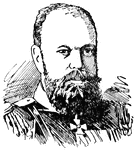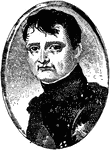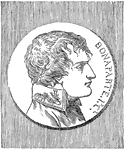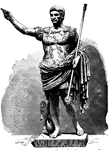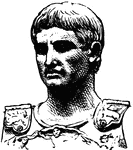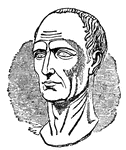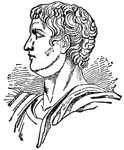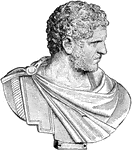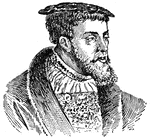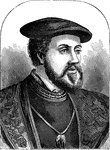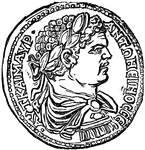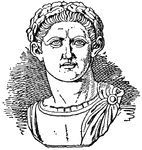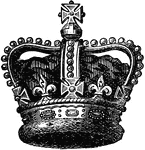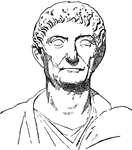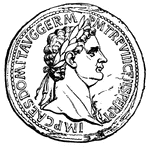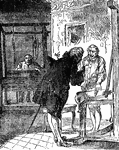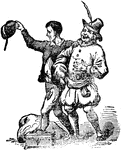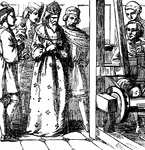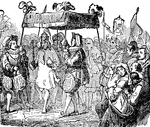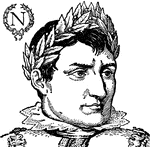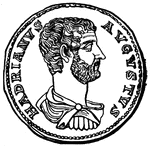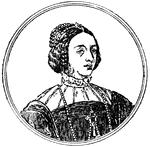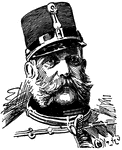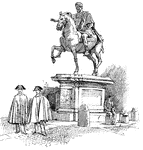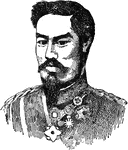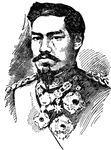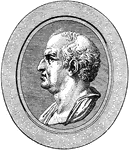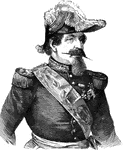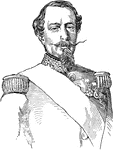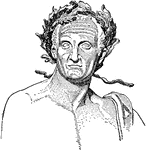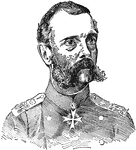
Alexander II of Russia
Also known as Alexander the Liberator. He was the Emperor of the Russian Empire from 1855 until his…

Marcus Aurelius Antoninus
"Marcus Aurelius Antoninus stands almost alone in the history of the world as a philosopher and philanthopist…
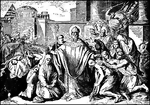
Athanasius is Banished from Alexandria
Illustration of Athanasius, bishop of Alexandria, during one of several times that he was banished from…
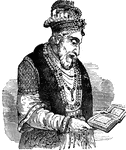
Aurungzrbr
"This sovereign was the last of the Mogul emperors of India who displayed the talent and energy of a…
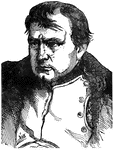
Napoleon Bonaparte
"The celebrated warrior and Emperor of the French, Napoleon Bonaparte, was born at Ajaccio, in the island…
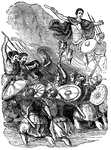
Caesar in England
"All histories of England commence with the invasion of Julius Caesar, the earliest event in that quarter…

Hall in Baths of Caracalla
"Marcus Aurelius Antoninus Caracalla was eldest son of the Emperor Severus, born in Lyons, A.D. 188.…
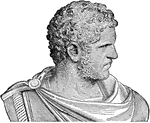
Bust of Caracalla
Caracalla (April 4, 188 – April 8, 217. Caracallus ), born Lucius Septimius Bassianus and later called…
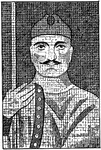
Charlemagne
The King of the Franks from 768 and the Emperor of the Romans from 800 until his death in 814.
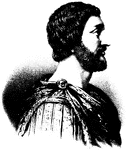
Charlemagne
(742-814) Christian Emperor. Time of rule was known as Carolingian Renaissance during which he built…

Constantine the Great
Emperor of Rome from 306 to 337. He is best known for being the first Christian Roman emperor.
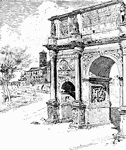
Arch of Constantine
"This arch is the most modern and the best preseved of all the buildings which remain of the Imperial…
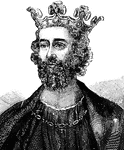
Edward II
Edward II, (April 25, 1284 – September 21, 1327?) of Caernarfon, was King of England from 1307…

Emperor Tiberius Wearing a Toga
Illustration of the Roman Emperor Tiberius wearing a draped toga, which was fashionable in the first…
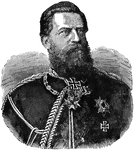
Frederick III, German Emperor
Frederick III (October 18, 1831 - June 15, 1888), was German Emperor and King of Prussia, ruling for…
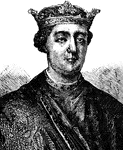
Henry II
Henry II of England (5 March 1133 – 6 July 1189) ruled as King of England (1154–1189). Henry…
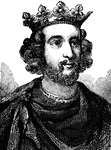
Henry III
Henry III (1 October 1207 – 16 November 1272) was the son and successor of John "Lackland" as…
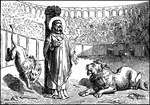
Ignatius of Antioch is Martyred by Being Fed to Lions
Illustration of Ignatius of Antioch, also called Ignatius Theophorus, tied to a post by his neck and…
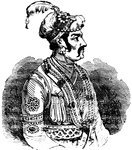
Jehangire
"Jehangire kept his court at Delhi, one of the most splendid cities of the East, where he called the…
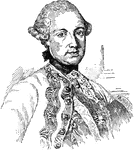
Joseph II
The Holy Roman Emperor from 1765 to 1790, and ruler of the Habsburg lands from 1780 to 1790.

Julian
"Thus the prince, both when present and when coming, was alike victorius: and these things he achieved…
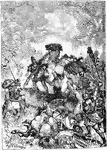
Death of Julian the Apostate
A depiction of Julian the Apostate, a noted philosopher and Roman Emperor, and his death.
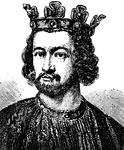
King John
John (24 December 1167 – 19 October 1216) reigned as King of England from 6 April 1199, until…

La Madeleine
"Begun by Napoleon in 1806; not completed until 1842. The emperor planned it as a 'of fame' to commemorate…
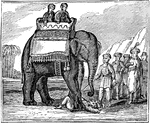
Emperor of the Moguls
Severe justice of Jehangire, emperor of the Moguls. Caption below illustration: "The Emperor commanded…

Chrysalis of the Luna Moth
"Among the larger and more splendid moths of our own country is the Luna Moth, or Green Emperor Moth,…
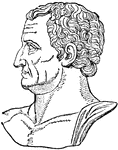
Nerva
"Nerva, the successor of Domitian, and one of the most virtuous of the Roman emperors. He was born in…
